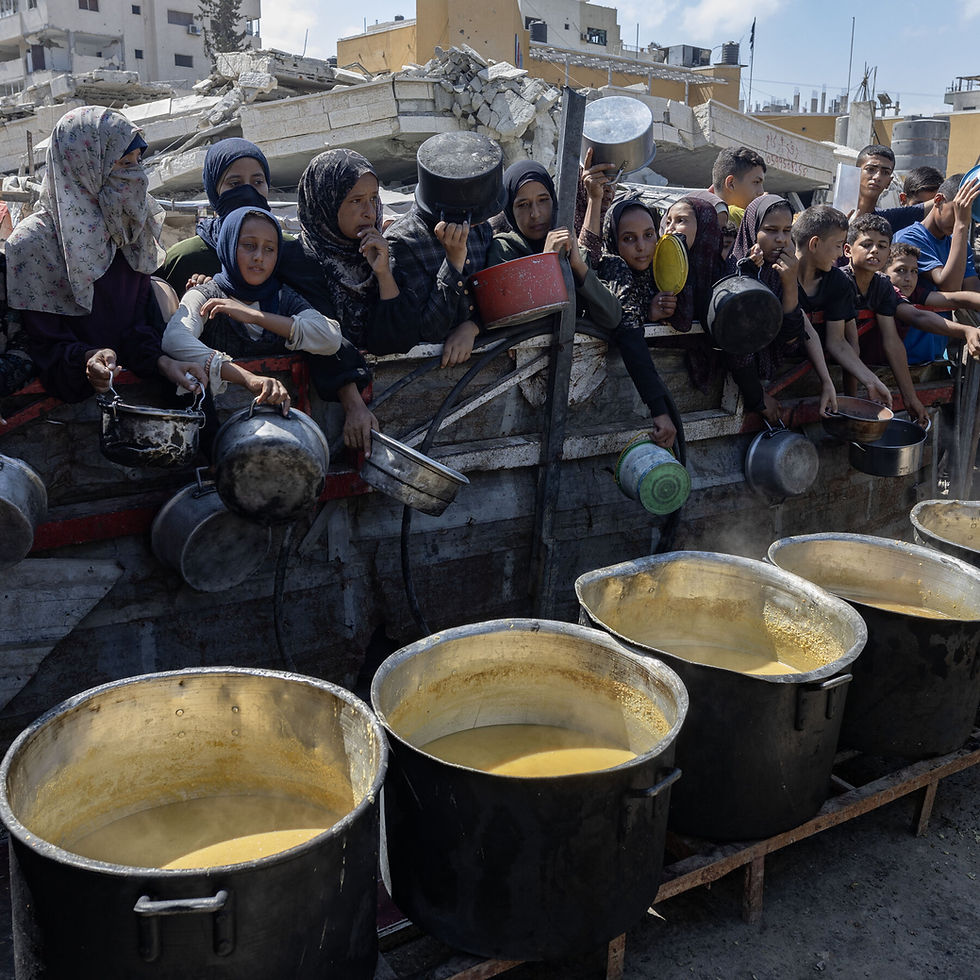Gaza’s Famine: A Crisis of Leadership and Responsibility
- The Epicurer

- 5 sept 2025
- 2 Min. de lectura
The unfolding famine in Gaza is more than a humanitarian tragedy. It is a political failure, a collapse of moral responsibility, and the direct consequence of strategies pursued by leaders on both sides of the conflict. While the people of Gaza bear the brunt of hunger, displacement, and grief, the policies driving their suffering demand honest scrutiny.
Israel’s right to exist and Its Responsibility
Israel has an uncompromised right to exist within its historical homeland and to defend its people against aggression. No state can be expected to tolerate attacks against its citizens, nor can it be asked to abandon its security. The October 7 attacks and ongoing rocket fire provide painful reminders of why Israel’s right to self-defense is not negotiable.
Yet Israel’s moral legitimacy cannot rest solely on its right to exist and defend itself. Its exercise of military power carries an obligation: to minimize harm to civilians and avoid policies that produce famine and unnecessary suffering. Precision in intelligence, clarity in target selection, and foresight in humanitarian corridors are not just tactical considerations — they are moral imperatives. Starvation of innocents is not a legitimate byproduct of war; it is a failure of execution and restraint.
The Palestinian Leadership’s Calculated Cruelty
The suffering of Gaza is also magnified by the cynical strategies of Palestinian militant groups and the authorities that enable them. Embedding weapons and fighters within civilian neighborhoods, hospitals, and schools is not only a violation of international law but a deliberate attempt to transform civilians into shields. Every civilian death becomes propaganda, every famine-stricken child a political statement.
By merging with the civilian population, militants ensure that Israel’s strikes will inevitably kill innocents — innocents then displayed as evidence of oppression. This strategy weaponizes human suffering, exploiting tragedy for political capital while leaving ordinary Gazans trapped between bombs and hunger.

At the core of Gaza’s famine is not only military force, but failed intelligence — the failure to anticipate how strategies, policies, and choices translate into mass civilian deprivation. Israel must do better at targeting without starving a population; Palestinian authorities must stop transforming their own people into expendable symbols of victimhood.
Neither side’s current path provides protection or dignity to civilians. Instead, it perpetuates a cycle in which human lives are bargaining chips. Gaza’s famine is not inevitable; it is engineered through decisions that could — and must — be made differently.
Acknowledging Israel’s right to security and statehood does not absolve it of the duty to shield innocents from starvation. Criticizing Palestinian militants for exploiting civilians does not excuse Israel from improving its humanitarian response. Both truths exist at once, and both must be spoken if famine is to end. Ultimately, the people of Gaza deserve better than to be trapped in a war of symbols. They deserve food, security, and the dignity of not being sacrificed to either side’s strategies. Ending famine is not only about aid convoys and supply chains — it is about demanding that leaders on both sides value civilian life over political leverage.



